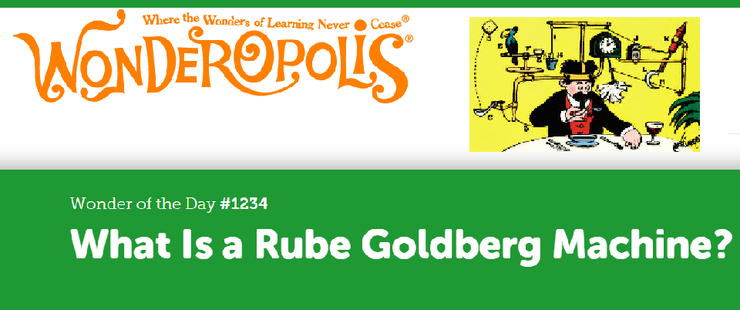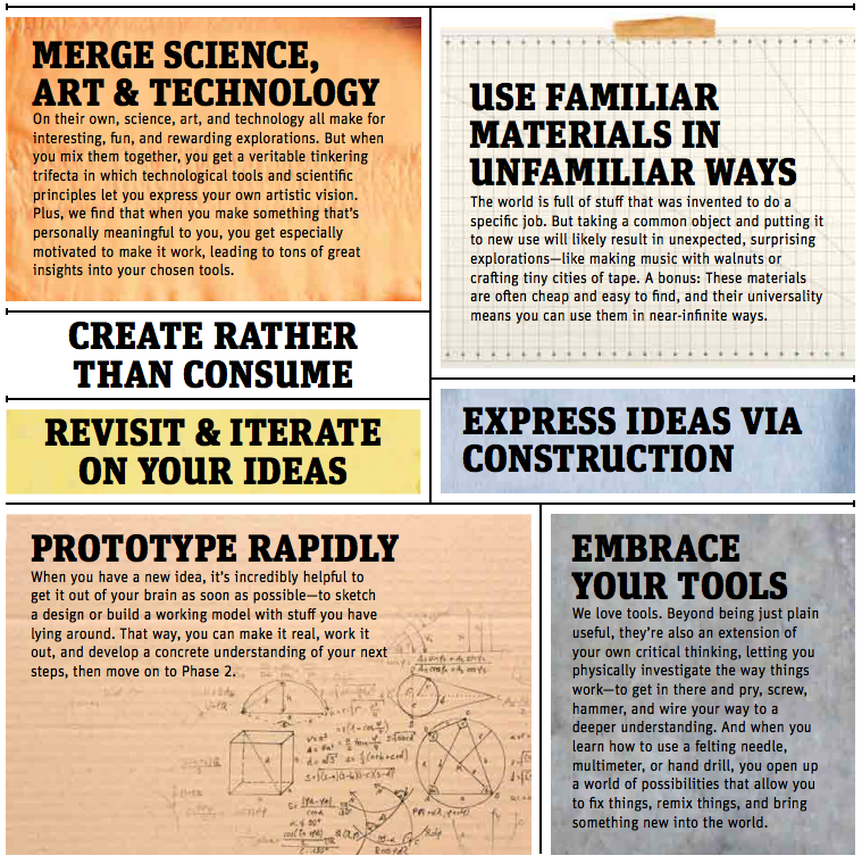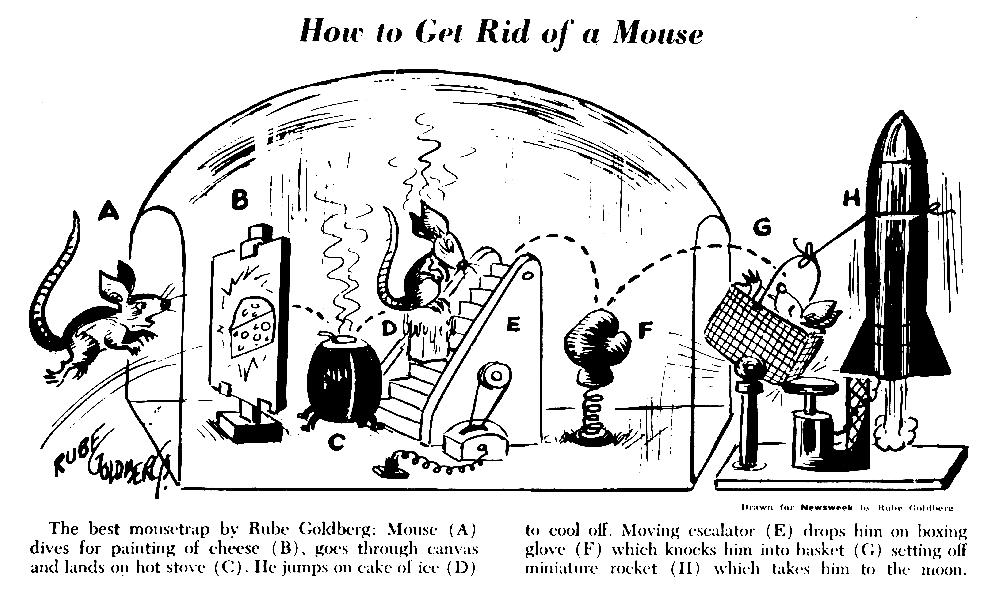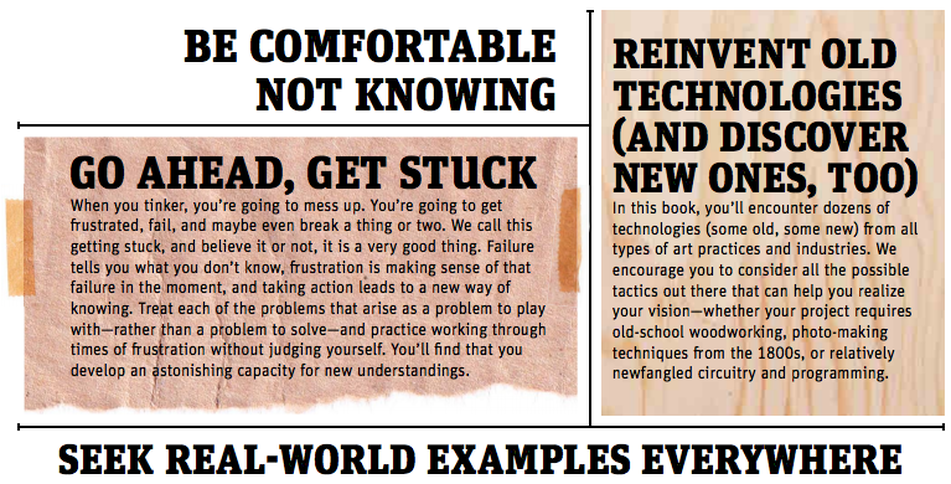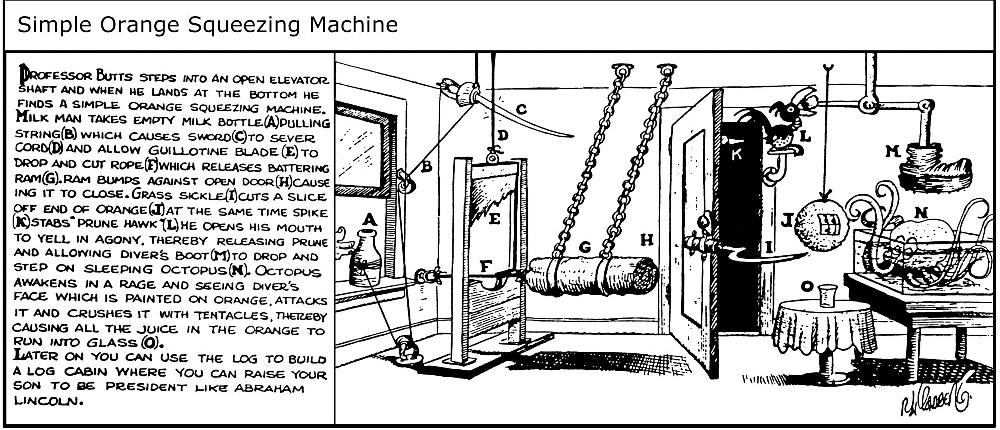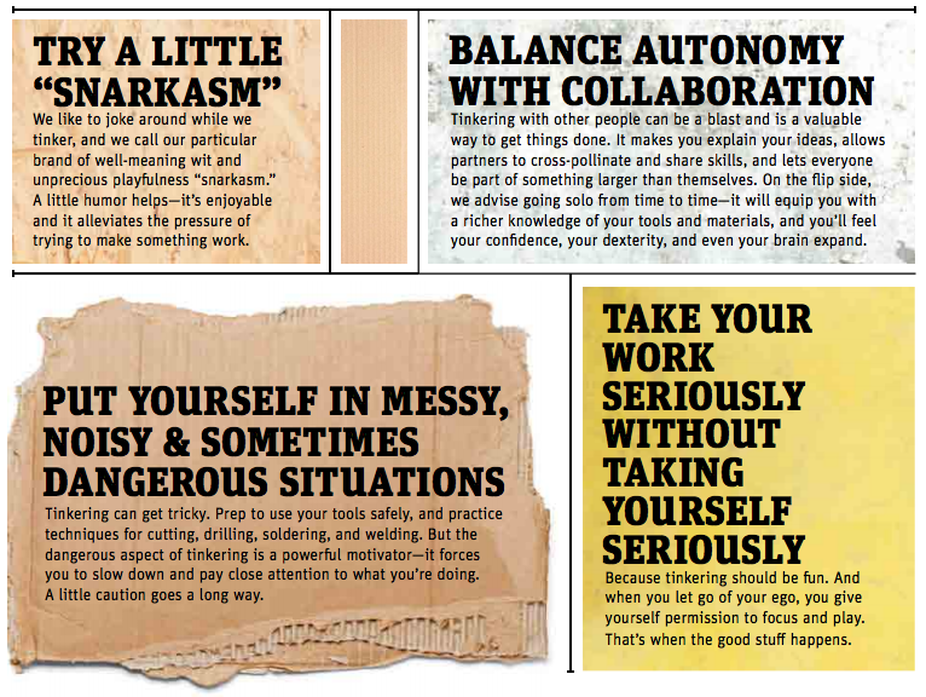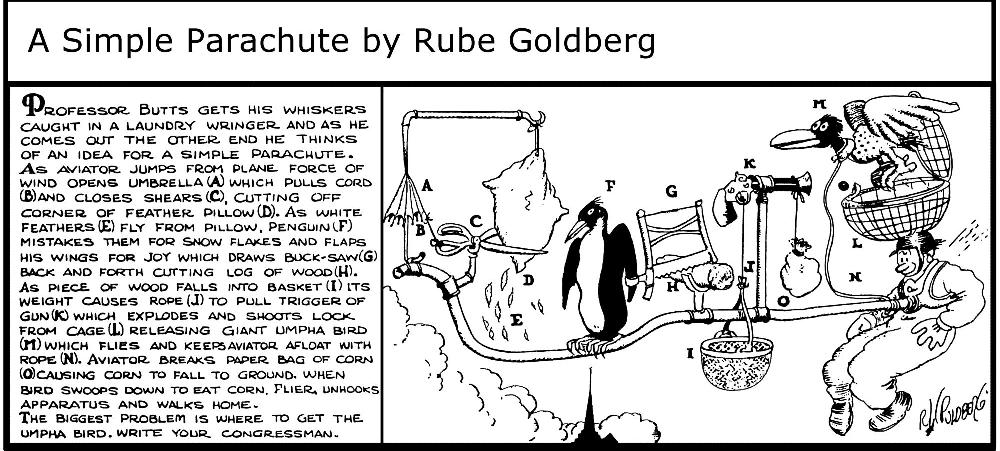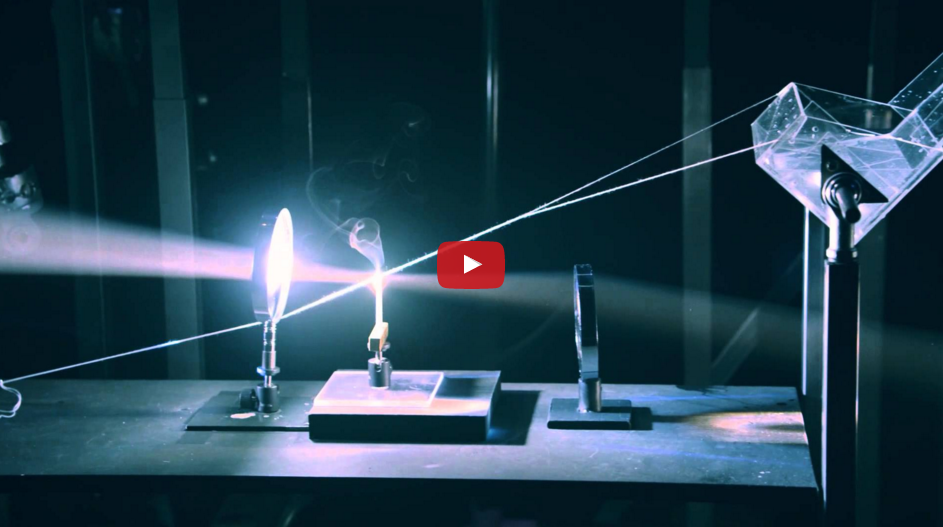Rube Goldberg:
A Complex Machine to Perform a Simple Task
Audri's Monster Trap
Family’s epic two-story Rube Goldberg machine scores foosball goal
during COVID-19 lockdown
https://www.thestate.com/news/coronavirus/article242086496.html
Target Rube Goldberg Advertisement
Sesame Street Rube Goldberg
http://www.josephherscher.com/
The video clips on this website are hosted via YouTube. Students, please be responsible in judging the relevance and value of the suggested videos displayed after the first video ends.
The video clips on this website are hosted via YouTube. Students, please be responsible in judging the relevance and value of the suggested videos displayed after the first video ends.
This winter and spring, students will be using everyday materials to construct their own machines in small groups.
Students will self-select groups of 2-3.
Students may brainstorm their own task, or get ideas from these options:
Students will self-select groups of 2-3.
Students may brainstorm their own task, or get ideas from these options:
- Trap a monster
- Turn a book page
- Roll coins into a bank
- Turn on a radio
- Put toothpaste on a toothbrush
Advice from Karen Wilkinson & Mike Petrich, curators of the Tinkering Studio at the Exploratorium Museum, San Francisco, California.
Let's start off with plans that include at least 7 steps. The plan should include the following elements:
- Materials needed
- Description of each step
- Total number of predicted steps
- Blueprints (sketch) of the machine design with labels.
- Upon teacher approval of project plans, students may begin collecting materials.
Advice from Karen Wilkinson & Mike Petrich, curators of the Tinkering Studio at the Exploratorium Museum, San Francisco, California.
Advice from Karen Wilkinson & Mike Petrich, curators of the Tinkering Studio at the Exploratorium Museum, San Francisco, California.
Safety and Security:
- Students are welcome to bring in cardboard that has not been used to store food.
- Plastic jars or bottles and metal cans are fine, but please wash them out (top rack dishwasher) before bringing to school. Please check can rims for metal burrs or spurs.
- NO GLASS.
- Please ask your teacher about sharp objects such as pins, screws, and nails before bringing them in
- Please do not bring in any one-of-a-kind toys or objects with sentimental value.
- Rube Goldberg devices may be large scale for set up in the classroom, but the parts must be easy to store in a printer paper box at the end of the day for set up the next week.
The Kids Should See This: Light-Powered Rube Goldberg Machine
Thanks to Kyle for suggesting this video clip. It is hosted via YouTube, so please understand that the suggested videos that appear after this clip may not be relevant to engineering.

